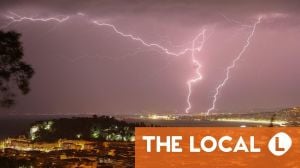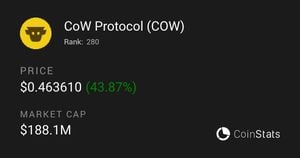On Tuesday, March 6, European Council President Antonio Costa met with Polish Prime Minister Donald Tusk to discuss the European Union's continued support for Ukraine amid the Russian invasion. This meeting, occurring on the third anniversary of the full-scale Russian aggression against Ukraine, follows Costa's recent visit to Kyiv alongside Ursula von der Leyen, President of the European Commission.
During their meeting, Tusk emphasized the importance of European unity concerning Ukrainian affairs and the need for collaborative defense measures. He stated, "I have no doubt strengthening European unity around Ukrainian matters and against Russia is absolutely urgent. We have full awareness of the potential upcoming negotiations requiring Europe's presence," reinforcing the collective responsibility Europe shares to support Ukraine.
Both leaders acknowledged the decision made to convene the European Council on March 6 as pivotal for Ukraine's safety and broader European security. Costa asserted, "Now is the time for action, to make decisions, and to fulfill promises." He highlighted an intent to present proposals to bolster Europe’s defense capabilities, emphasizing Russia as not only a threat to Ukraine but to the security of the entire continent, particularly for countries on the eastern flank such as Poland, the Baltic states, and Romania.
The significance of the upcoming meeting on March 6 can't be understated. Costa noted, "This is a decisive moment for the security of Ukraine and Europe. During consultations with European leaders, I have heard strong commitments to tackle these challenges at the EU level: strengthening European defense and decisively contributing to peace on our continent and the long-term security of Ukraine."
Tusk also remarked on the necessity for greater mobilization within Europe concerning defense funding, expressing optimism for the forthcoming plans from the European Commission. He remarked, "I hope increased mobilization for security funding will become reality. The President indicated the Commission is on the right path, preparing a package whose details we will know on March 6." He underscored Poland's role as a leader in defense spending, which could set examples for other nations within the EU.
Adding to the discussion, Tusk highlighted the importance of recognizing the protection of the EU's eastern borders as a joint European task. "From Poland's perspective, it is very significant to acknowledge the defense of the eastern border of the EU as our common European task," he stated, thanking Costa for his support on this matter.
Diving deep, Costa reiterated the urgency of this moment, stressing, "It is time to take action, to make decisions, and to deliver results. The priority of the European Union is clear: to defend our eastern borders." He underscored the necessity of collective European action moving forward.
With discussions around Ukraine's EU accession and the need for unified defense strategies at the center of the agenda, both Costa and Tusk conveyed optimism for the upcoming European Council's actions. Costa expressed openness to future peace talks, stating, "The Council is open to future peace negotiations and maintaining peace. Then we want to participate in rebuilding the country and addressing Ukraine's accession to the European Union. We will tackle these matters during the Council meeting next week."
The backdrop of this engagement was echoed by several leaders during the previous meeting held among western leaders and the European Commission, reinforcing the common objectives centered around strengthening European defense and unity. Tusk's acknowledgment of newfound clarity among nations on defense spending reflects shifting priorities within the EU, where security has emerged as the deciding theme. "Security issues have become a real priority," he noted.
Anticipation builds toward the special European Council meeting, where leaders will solidify plans to not only alleviate pressures on Ukraine but to also coordinate broader European defense strategies. This gathering symbolizes Europe's commitment to safeguarding Ukrainian sovereignty and countering any threats posed by Russia's actions.
Reports from Kyiv on the day of Costa and von der Leyen's visit reaffirmed the narrative of resilience, with Ukrainian leaders, including President Volodymyr Zelensky, emphasizing the need for unity and collaboration within Europe. Zelensky remarked, "This year should be the beginning of real, lasting peace. Putin will not give us peace; we must wrest it by strength, wisdom, and unity — our cooperation."
With the stakes higher than ever and Europe standing united, March 6 promises to be a turning point for the region’s strategic response to the challenges posed by the war.



